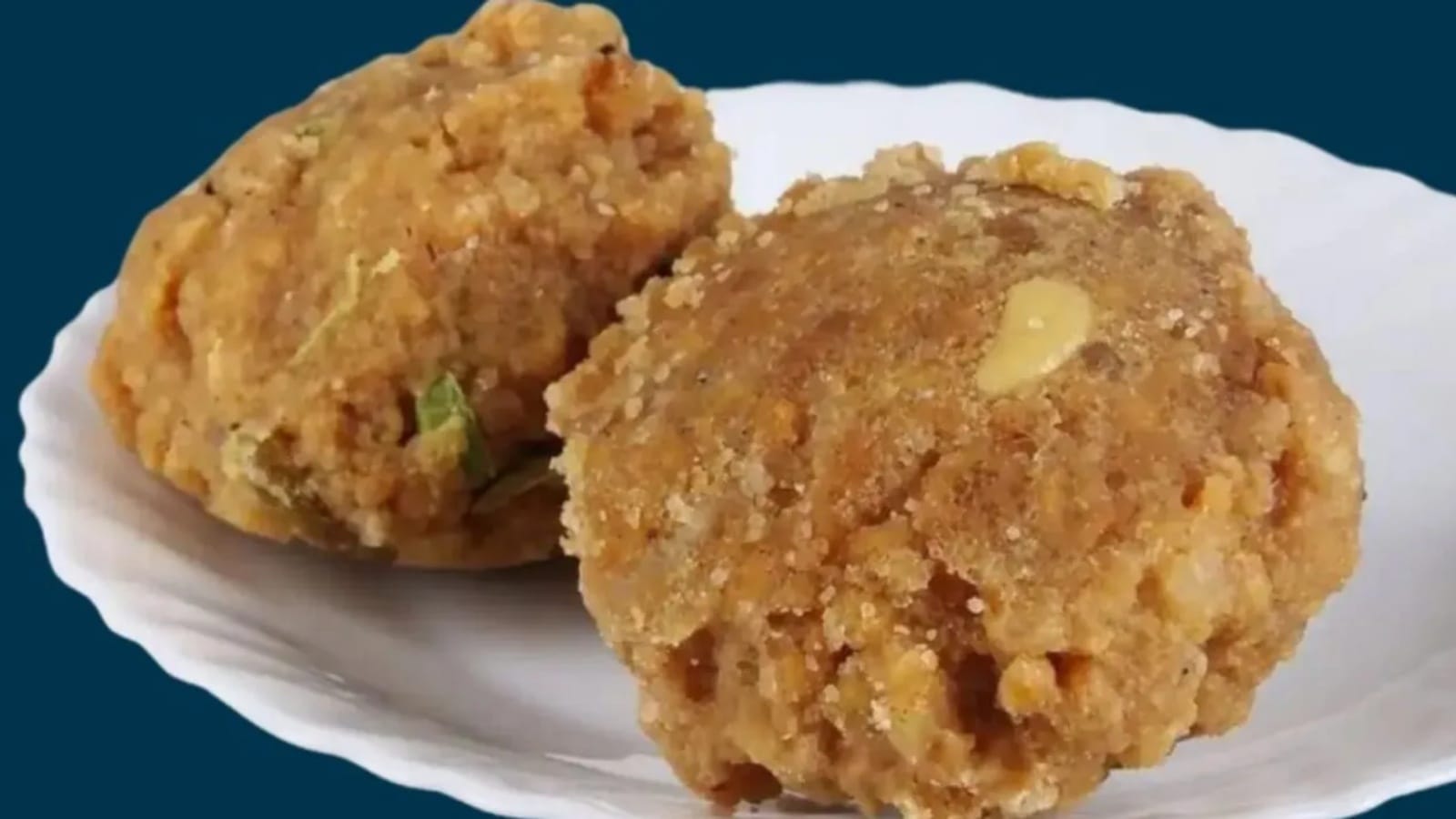📣 For more lifestyle news, click here to join our WhatsApp Channel and also follow us on Instagram
How eating adulterated ghee affects health
Adulterated ghee often contains harmful substances that can have serious consequences for your well-being.
 Discover the hidden dangers of consuming adulterated ghee. (Source: Freepik)
Discover the hidden dangers of consuming adulterated ghee. (Source: Freepik)Ghee, a staple in many households, is revered for its rich flavour and numerous health benefits. However, in the past few days, the food product has been getting a bad name, especially since claims of the ghee used in Tirupati laddoos is said to be contaminated with beef tallow.
Adulterated ghee often contains harmful substances that can have serious consequences for your well-being. According to Dr Rakesh Gupta, Senior Consultant of Internal Medicine at Indraprastha Apollo Hospitals, consuming adulterated ghee can lead to both short-term and long-term health issues, some of which are severe.
Common adulterants in ghee
Adulteration of ghee typically involves the addition of cheaper substances to increase profit margins. Common adulterants, according to Dr Gupta, include:
- Vegetable oils: Low-cost oils such as palm oil are often mixed into ghee.
- Animal fats: In some cases, non-edible animal fats are used to mimic the texture of ghee.
- Synthetic additives: Harmful chemicals like paraffin wax or even detergents are used to enhance consistency and appearance.
These adulterants not only degrade the nutritional value of ghee but also introduce toxins into the body, posing serious health risks.
Dr Nishant Singh, Senior Consultant, Department of Internal Medicine, Yatharth Super Speciality Hospital, Noida Extension, explained that adulterants such as hydrogenated fats can contain harmful chemicals and preservatives that negatively affect health. Some products may also be contaminated with heavy metals, which can accumulate in the body and lead to severe health problems, including kidney damage and neurological disorders.
 The row started after Andhra CM Chandrababu Naidu alleged that animal tallow was found in ghee used to make the Prasad at the temple and his party cited a report from NDDB as the basis for the claim. (File Photo)
The row started after Andhra CM Chandrababu Naidu alleged that animal tallow was found in ghee used to make the Prasad at the temple and his party cited a report from NDDB as the basis for the claim. (File Photo)
What happens if you eat adulterated ghee?
Dr Gupta and Dr Singh explained what the short-term effects of eating adulterated ghee are:
- Digestive Issues: Adulterated ghee can cause acute digestive problems such as nausea, vomiting, diarrhea, and abdominal discomfort. The body struggles to process synthetic additives or non-edible substances, leading to gastrointestinal distress, Dr Singh explained.
- Toxin Exposure: Harmful chemicals used in adulteration, such as paraffin wax or detergents, can introduce toxins into the body. These toxins may cause irritation to the digestive tract and could lead to more severe complications with prolonged exposure.
- Allergic Reactions: For individuals with sensitivities or allergies, adulterated ghee may trigger reactions ranging from skin rashes to more severe respiratory issues.
Long-term health consequences
- Liver Damage: Continuous consumption of adulterated ghee can put a strain on the liver, which is responsible for detoxifying harmful substances. Over time, this can result in liver damage or even conditions like fatty liver disease.
- Cardiovascular Issues: Ghee is known for its healthy fats when consumed in moderation. However, when adulterated with unhealthy fats or oils, it can elevate bad cholesterol (LDL) levels, increasing the risk of heart disease, high blood pressure, and strokes, Dr Gupta said.
- Nutrient Malabsorption: Adulterants in ghee can disrupt the body’s ability to absorb essential nutrients. This can lead to malnutrition and deficiencies in vital vitamins and minerals, even if the diet appears balanced, Dr Singh said.
- Hormonal Imbalances: Certain chemicals used in adulterated ghee can interfere with hormone production and regulation. Over time, this may lead to metabolic disruptions, weight gain, or hormonal disorders like thyroid imbalances.
How to Identify Adulterated Ghee
Spotting adulterated ghee can be challenging, but here are some common signs:
- Unusual texture: Adulterated ghee may have an unusually greasy or waxy texture.
- Strong or artificial smell: Genuine ghee has a distinct, pleasant aroma. If it smells too strong or artificial, it could be adulterated.
- Changes in color: Pure ghee has a consistent golden-yellow color. If the color appears uneven or off, it may indicate adulteration.
To avoid the risks associated with adulterated ghee, Dr Gupta advises purchasing ghee from reputable brands that follow strict quality control measures. Look for certifications such as FSSAI (Food Safety and Standards Authority of India) or similar regulatory bodies in your region. Additionally, be mindful of the price—extremely cheap ghee is often a red flag for adulteration.
DISCLAIMER: This article is based on information from the public domain and/or the experts we spoke to. Always consult your health practitioner before starting any routine.
📣 For more lifestyle news, click here to join our WhatsApp Channel and also follow us on Instagram



- 01
- 02
- 03
- 04
- 05
























